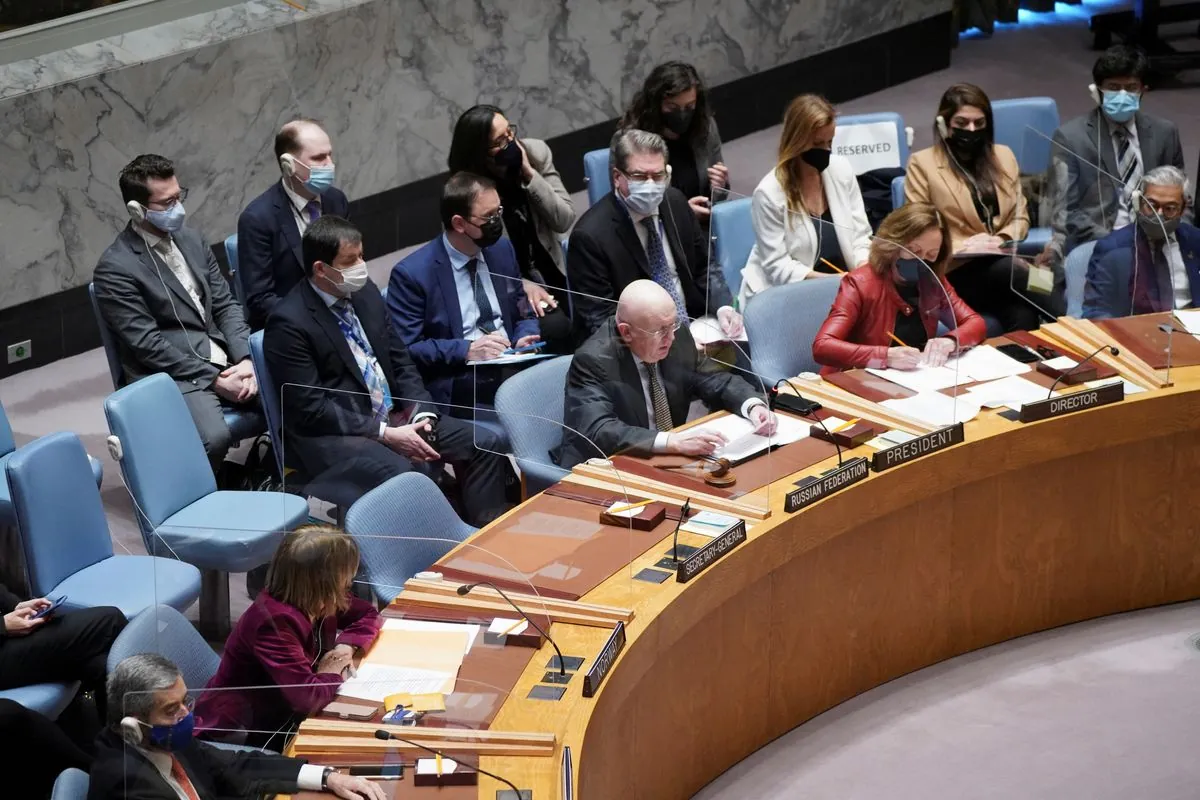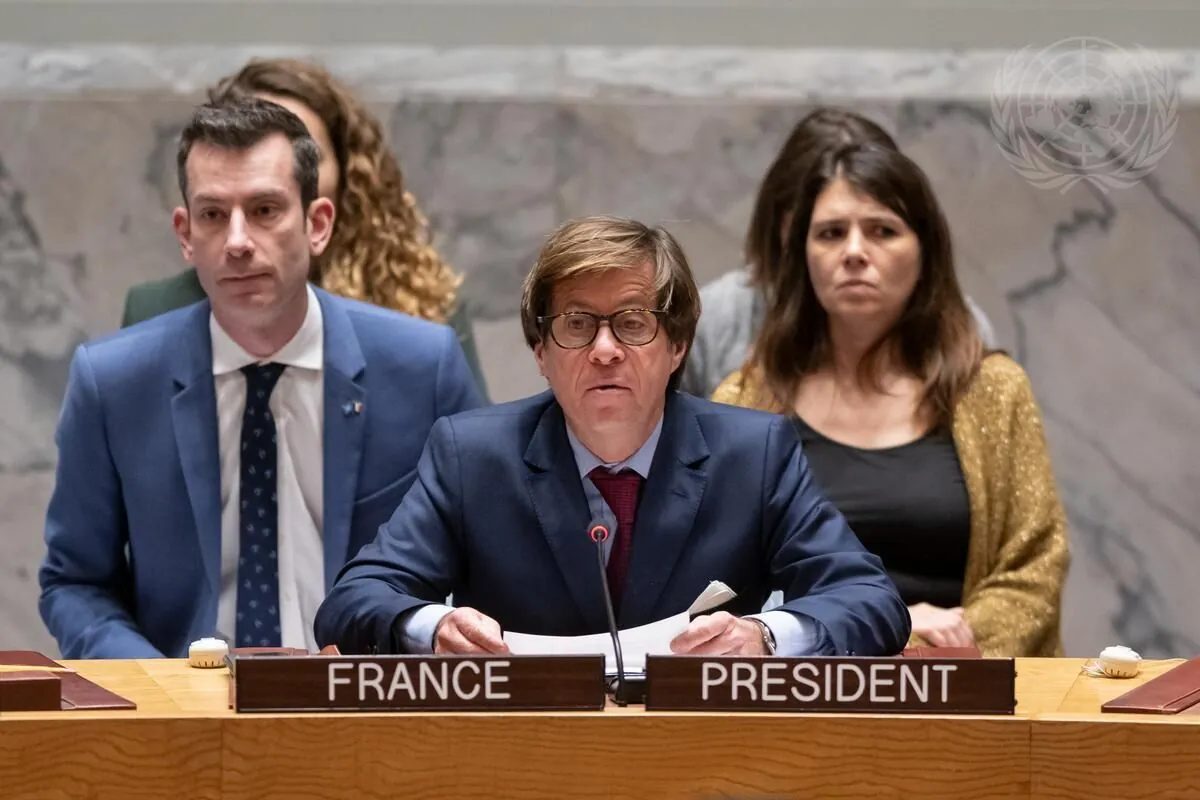US Warns Iran at UN Security Council Amid Middle East Tensions
The United States cautioned Iran against targeting Israel or US interests during a UN Security Council meeting. The session addressed recent escalations in the Middle East, with calls for de-escalation and potential consequences.

On October 2, 2024, the United Nations Security Council convened to address escalating tensions in the Middle East. The meeting, held at the iconic UN headquarters in New York, brought together representatives from the 15 member states to discuss recent events involving Iran, Israel, and regional actors.
Linda Thomas-Greenfield, the United States Ambassador to the UN, issued a stern warning to Iran during the session. She emphasized that the Iranian regime would be held accountable for its actions and cautioned against any further aggression towards Israel or US interests. This statement came in response to recent military exchanges between Iran and Israel, which have raised concerns about a potential wider conflict in the region.
The Security Council, established in 1945 as one of the UN's principal organs, has been involved in Middle East peacekeeping efforts since 1948. Its current composition of five permanent and ten non-permanent members reflects the global power dynamics established in the aftermath of World War II.
UN Secretary-General António Guterres, who has held the position since 2017, called for an immediate end to the "deadly cycle of tit-for-tat violence" in the Middle East. The concept of "tit-for-tat" in international relations is closely related to game theory and has been a recurring theme in conflicts throughout history.
"Time is running out"
This urgent plea from the Secretary-General underscores the gravity of the situation and the potential for further escalation if diplomatic efforts fail.
The French Ambassador, Nicolas de Riviere, urged the Security Council to demonstrate unity and speak with one voice to de-escalate the situation. This call for collective action aligns with the UN's founding principles of maintaining international peace and security.

The United States pushed for additional sanctions on Iran's Islamic Revolutionary Guard Corps (IRGC), established in 1979 following the Iranian Revolution. The Security Council has the authority to impose such sanctions under Chapter VII of the UN Charter, signed on June 26, 1945, in San Francisco.
Iran, in a letter to the Security Council, justified its recent attack on Israel as self-defense under Article 51 of the UN Charter. This article deals specifically with the right of self-defense in international law. Iran claimed to have targeted only military and security installations, adhering to the principle of distinction in international humanitarian law, which aims to protect civilians during armed conflicts.
Danny Danon, Israel's UN Ambassador, rejected Iran's claim of self-defense, describing the attack as a "calculated attack on a civilian population." He promised a decisive response from Israel, emphasizing that it would be conducted in full accordance with international law.
The situation in the Middle East remains complex, with the region covering an area of about 7.2 million square kilometers and a history of conflicts dating back centuries. The UN's involvement in the region has been ongoing, with its six official languages, including Arabic, facilitating communication in diplomatic efforts.
As tensions continue to simmer, the international community watches closely. The Security Council chamber, adorned with a mural by Norwegian artist Per Krohg, serves as a poignant backdrop for these critical discussions that could shape the future of the Middle East and global security.


































